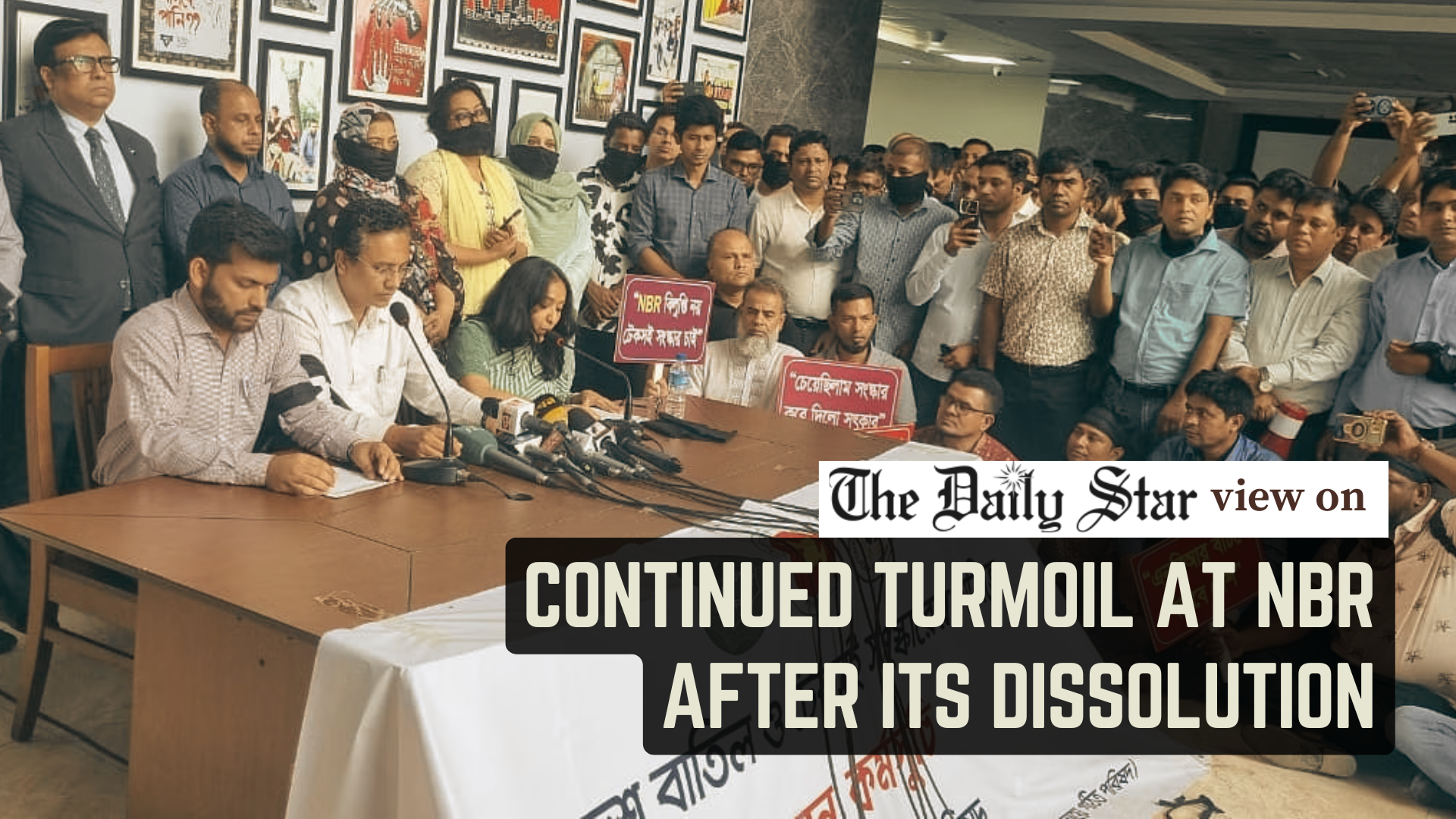End the NBR crisis before it does more damage

It is deeply alarming that even after around 40 days, the stalemate at the National Board of Revenue (NBR) remains unresolved. We must say that this crisis—along with the Nagar Bhaban paralysis that continued almost simultaneously until Thursday—has set a bad precedent, even by the standards of our often fractious and crisis-ridden public administration. And the longer it drags on, the more it disrupts administrative functions, damages the economy, and undermines public trust in the government's ability to handle sensitive reform processes.
According to media reports, the protesting NBR officials have issued an ultimatum that if the NBR chairman is not removed by this Friday, they would go for a total shutdown from Saturday. The protesters—comprising officers across income tax, VAT, and customs departments—have been staging daily pen-down strikes and sit-ins in front of the NBR headquarters for several hours since June 22. Earlier protests in response to the NBR bifurcation ordinance announced on May 12 had failed to yield any result. Since Wednesday, most NBR offices across the country have also observed work abstention, with only export processing and international passenger services remaining operational.
The wider effect of such disruptions cannot be overstated, with vital revenue collection activities being halted at a time when the government needs every taka to replenish its coffers and maintain macroeconomic stability. With a full shutdown now being threatened, the situation could deteriorate even further. Perhaps this is what the protesters intended—using the disruption and the resulting losses and suffering as a bargaining chip—but as we have warned before, there can be no justification for the way they have chosen to protest. What troubles us more is how preventable this crisis was from the outset.
The wider effect of such disruptions cannot be overstated, with vital revenue collection activities being halted at a time when the government needs every taka to replenish its coffers and maintain macroeconomic stability. With a full shutdown now being threatened, the situation could deteriorate even further. Perhaps this is what the protesters intended—using the disruption and the resulting losses and suffering as a bargaining chip—but as we have warned before, there can be no justification for the way they have chosen to protest. What troubles us more is how preventable this crisis was from the outset. The government should have adopted a more consultative approach when drafting the NBR ordinance. Even after protests had dragged on for weeks, it failed to engage properly with the protesters' demands for prioritising revenue cadre officers in key positions and withdrawing recent punitive transfer orders.
This has only fuelled resentment among protesters who are now doubling down on their forceful tactics. This is totally unacceptable. An administration cannot be held hostage by its employees, nor can it remain blind to their legitimate grievances. It is possible, as some experts say, that the stalemate is being prolonged due to "ego clashes." Whatever the reasons may be, we believe it is high time the chief adviser intervened directly to resolve the issue. A clear roadmap, including a timeline for any ordinance revision, must be announced without delay so that everyone can return to work.



 For all latest news, follow The Daily Star's Google News channel.
For all latest news, follow The Daily Star's Google News channel. 

Comments